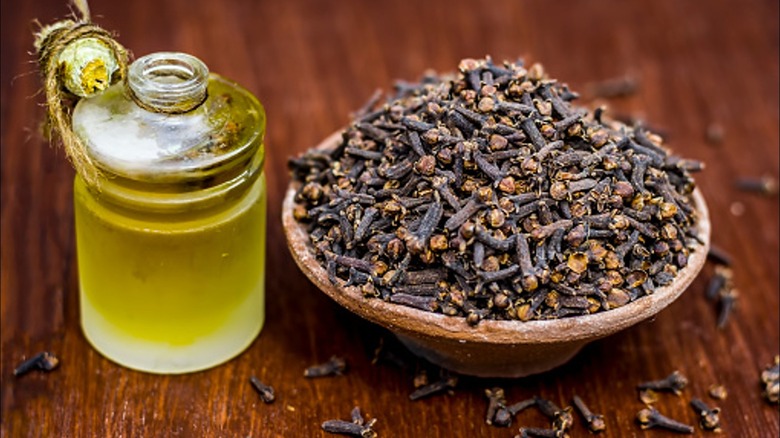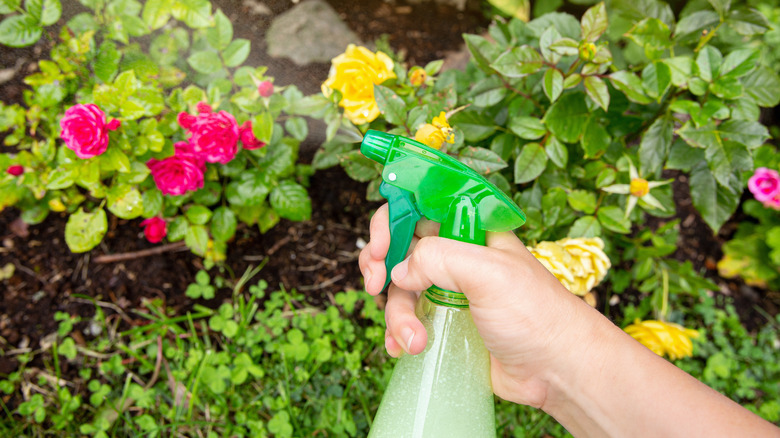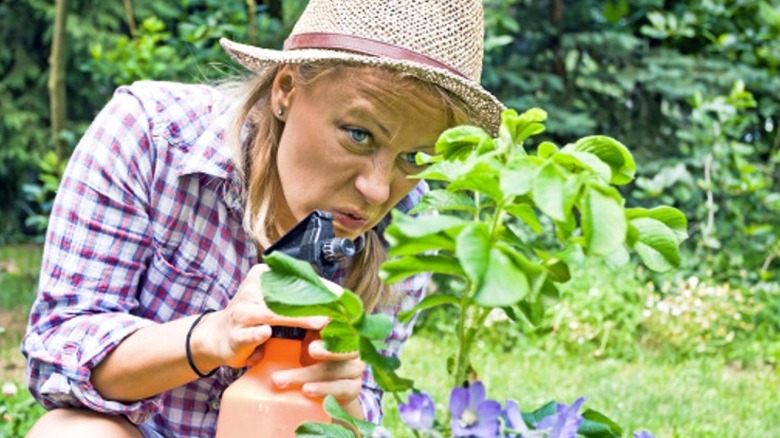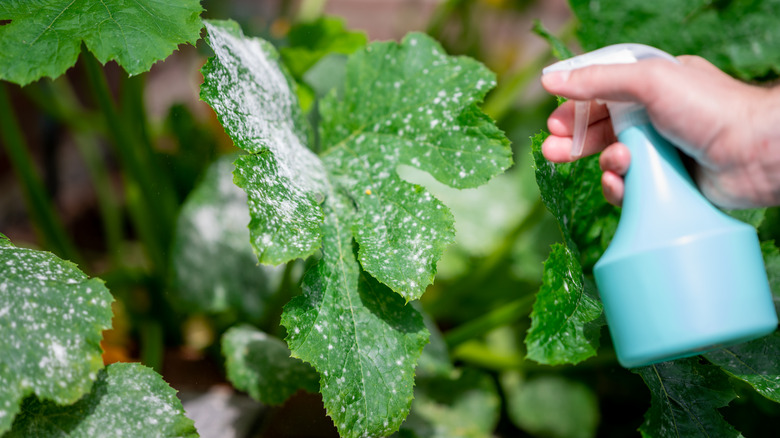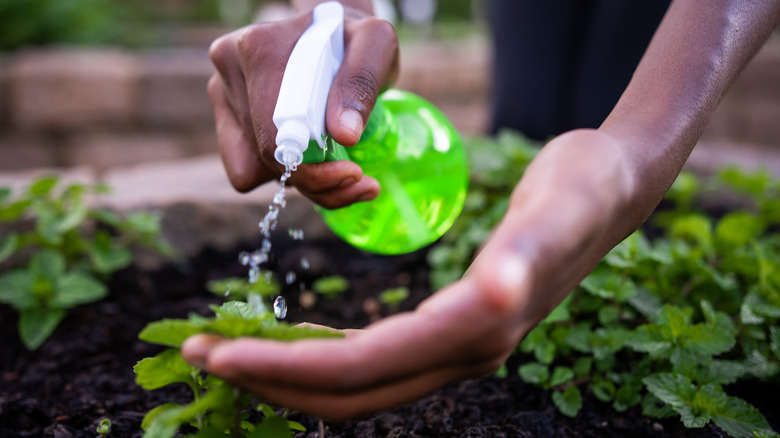Use Clove Oil In Garden And Watch It Thrive
We love the smell of cloves in the fall and winter months, but the oil of these spicy dried flower buds is also useful in the garden. Clove oil comes from the clove tree, which is native to Southeast Asia. The dried flower buds, along with other parts of this tree, are distilled before they are used to extract the oil. This highly potent substance has been used for aromatherapy and medicine for centuries and can even be mixed with water to help your garden stay healthy.
In medicine, clove oil is still commonly used to relieve toothaches, and the same properties that enable it to soothe pain make it useful in the garden. This essential oil contains eugenol, which offers antimicrobial properties while acting as an effective pesticide. While it is not a "one size fits all" solution for your garden problems, it is certainly something to consider keeping on hand for many common issues.
How to make clove oil spray at home
To make your own clove oil for your garden, you just need a few drops to make a big impact. Think of the oil itself as a condensed version of the garden spray because the main ingredient is actually water. For this project, you will need a bottle of clove essential oil, a standard household spray bottle, and plain old tap water. Although the oil itself may be expensive, it will last a long time.
Fill your spray bottle with 1 liter of water, then add 1 or 2 drops of clove oil. Shake the bottle to combine the two simple ingredients. Since oil and water do not actually blend well, you must remember to give the bottle a good shake every time you use it. This will ensure you are actually getting the active ingredient — clove oil — on your plants. Water alone will not do a lot of good against garden issues.
Clove oil for pest control on plants
If you are dealing with large pests like tomato hornworms or those with tough exoskeletons like squash bugs, clove oil probably will not help much. But, if hoards of soft-bodied bugs like aphids, whiteflies, or spider mites have taken over your garden, this simple mixture is very effective. Although they are small, these little pests can be surprisingly difficult to eradicate. The oily nature of clove spray helps it stick to those pests while its powerful chemical compounds eliminate them.
To make sure clove oil garden spray is safe to use in your garden, try it on a small portion of a leaf before dousing the whole plant. Although it should not cause damage to any plants, some may be more sensitive to oils than others. It is always better to be safe than sorry when trying something new. Once you have determined the mixture does not cause any problems, spray the top and underside of leaves, along with the stem of the plant, and anywhere else you see pests. Repeat the application about once a week to get rid of bugs and keep them away.
Clove oil for powdery mildew
Fungal issues are often as frustrating as pest problems. Sometimes, they're even more maddening because they can be difficult to identify. One common fungal problem in the garden is powdery mildew, which often presents on large leaves like those on squash plants. As the name implies, this type of fungus looks like a light dusting of white powder on the top of the leaves. Heat and humidity help encourage this type of growth.
Some changes to the environmental conditions surrounding your broad-leaf plants can help prevent or slow the spread of powdery mildew. Providing plenty of airflow between plants by removing some leaves may be beneficial, but to prevent the spread of this frustrating problem, tackle it at the first sign. When you see that telltale "powder" on your plants, thoroughly soak the leaves with your homemade clove oil garden spray. Repeat the application every few days until you see improvement, and prevent this fungal issue from returning by soaking your leaves once a week.
Clove oil for bacterial blight
Just like in humans, bacteria can create havoc in the garden. Thankfully, the eugenol that exists within clove oil contains antibacterial properties. In areas with cool, damp conditions, this is particularly useful for preventing bacterial blight, which spreads on the surface of leaves. This problem occurs during a long, damp period during which the bacteria thrives and spreads. Early signs of this type of blight are small brown spots on the upper leaves of your plant. Left untreated, those spots will encompass and destroy the entire leaf.
Like using clove oil for fungal issues, early detection is the key to preventing the spread of bacterial blight. Remove any severely damaged leaves and treat the rest of the plant with clove oil spray at least once a week. Repeat the application process until the weather warms up and dries out and the environmental conditions in which bacterial blight no longer spreads.
Clove oil as a mosquito repellant
Plants are not the only ones that deal with pests in the garden. Mosquitoes are a particular problem that can keep you from enjoying your garden and outdoor space. Can clove oil help with that, too? You betcha! By placing 2 drops of clove oil on each of your wrists, you can repel mosquitoes while you work in the garden. This direct application is not for everyone. If you are pregnant or breastfeeding, you can get the benefits of clove oil without applying it directly to your skin. Just place a few drops on a handkerchief and carry it in your pocket. This is also a good option for those with sensitive skin.
If you simply want to enjoy your outdoor space without being pestered by mosquitoes, place a few drops of undiluted clove oil on a handful of cotton balls. Place those cotton balls on furniture or on the railing of your deck to repel those nasty biting bugs.
